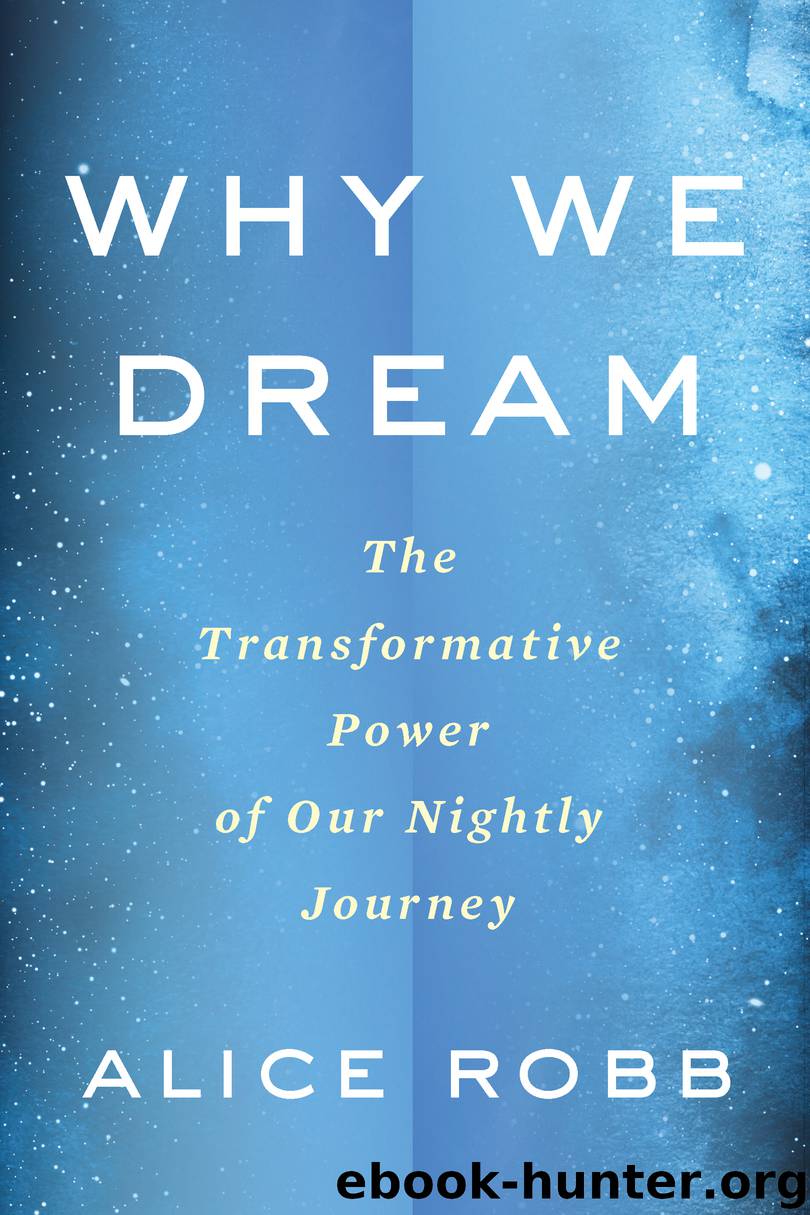Why We Dream by Alice Robb

Author:Alice Robb
Language: eng
Format: epub
Publisher: Houghton Mifflin Harcourt
WHILE DREAMING ABOUT stressful events can help us process them, replaying traumatic events is counterproductive. In the 1970s, psychologist Joseph De Koninck devised an experiment to see how dreaming about an upsetting experience would affect students’ ability to cope with it. Just before going to bed, he had a group of undergraduates watch an old, violent public service announcement about workplace safety. Two factory workers lost pieces of their fingers in the machines—the camera lingered on their bloody stumps—and a third keeled over and died after a coworker accidentally shot a board into his chest. When one group of students fell into REM sleep, De Koninck played a particularly disturbing piece of the soundtrack in which the clumsy perpetrator of the last, fatal accident said gravely, the sound of a power saw rasping in the background, “I knew then that I, Lucky Williams, had killed a man, sure as though I had done it with my own hands, and it didn’t have to happen.” Meanwhile, another group slept in a quiet room.
As De Koninck predicted, the students who had been exposed to the soundtrack while they slept incorporated the film into their dreams at a higher rate. When everyone watched the video for a second time, the ones who had heard the soundtrack and dreamed about the film were even more stressed. Rather than softening the blow, the dreams had intensified it—just as nightmares can worsen the psychological impact of more serious traumas.
For people with posttraumatic stress disorder, nightmares that incorporate vivid flashbacks to the very events that victims want to forget can be crippling. “If the daytime is the occasional stalking ground of Freud’s daemons, then the nighttime is their lair, an underworld of mystery and metamorphosis where they have free rein,” PTSD sufferer David Morris wrote in The Evil Hours. “The daemonic night and its chief product, the nightmare, have always been a special hell for survivors.” In the general population, nightmares are linked to self-harm. Adolescents in rural China who have frequent nightmares attempt suicide nearly three times as often as their peers. In a longitudinal study of more than thirty-six thousand Finnish adults, the rate of suicide was 105 percent higher among frequent than occasional nightmare sufferers.
Download
This site does not store any files on its server. We only index and link to content provided by other sites. Please contact the content providers to delete copyright contents if any and email us, we'll remove relevant links or contents immediately.
Men In Love by Nancy Friday(4330)
Everything Happens for a Reason by Kate Bowler(4068)
The Immortal Life of Henrietta Lacks by Rebecca Skloot(3828)
Why We Sleep by Matthew Walker(3774)
The Sports Rules Book by Human Kinetics(3590)
Not a Diet Book by James Smith(2728)
The Emperor of All Maladies: A Biography of Cancer by Siddhartha Mukherjee(2431)
Sapiens and Homo Deus by Yuval Noah Harari(2416)
Day by Elie Wiesel(2243)
Endless Forms Most Beautiful by Sean B. Carroll(2084)
Angels in America by Tony Kushner(2050)
A Burst of Light by Audre Lorde(1981)
Hashimoto's Protocol by Izabella Wentz PharmD(1898)
Dirty Genes by Ben Lynch(1856)
Reservoir 13 by Jon McGregor(1855)
Stretching to Stay Young by Jessica Matthews(1715)
Fat for Fuel by Joseph Mercola(1696)
The Immune System Recovery Plan by Susan Blum(1695)
Boost Your Brain Power in 60 Seconds by Michelle Schoffro Cook(1678)
